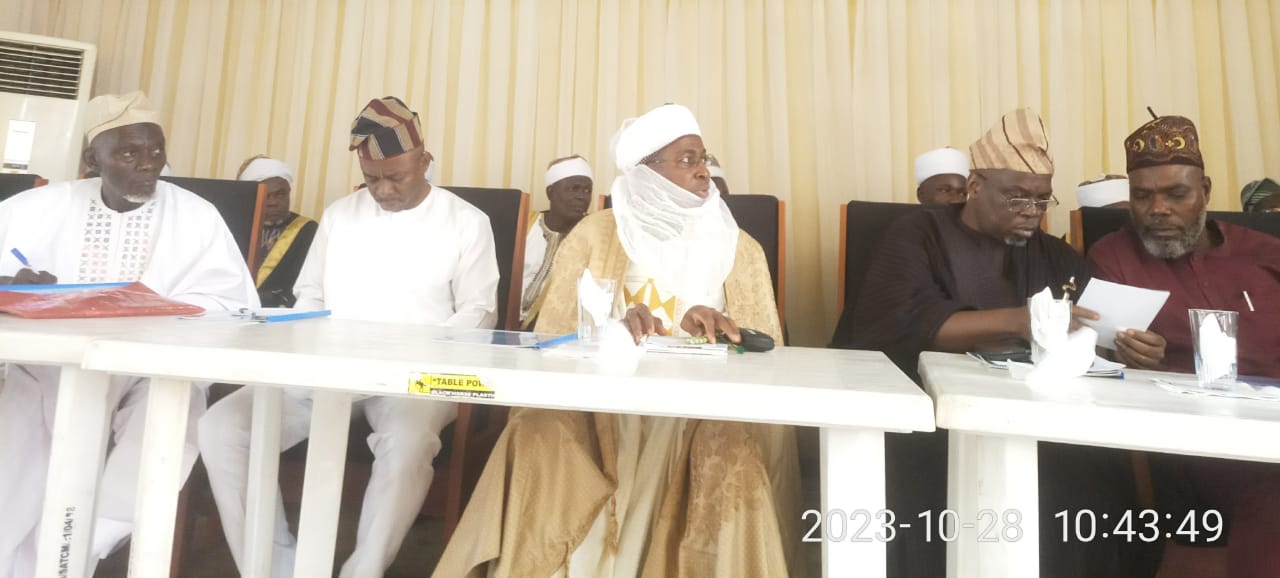By Our Correspondent
The Chief Imam of Lagos, Sheikh Sulaimon Abu-Naollah, has urged Muslim communities to ensure proper documentation of their Mosque property to avoid forfeiture to the government in future.
Abu-Naollah made the appeal during a one-day sensitisation programme tagged “Mosque Documentation in Lagos State”, held in Lagos on Saturday.
He said there were lots of gaps among the Muslim communities concerning the Islamic faith in Lagos.
In any place where there was government, he said, there were standards and processes.
The Imam added, that the Qur’an emphasised on proper documentation of properties.
“In respect of mosque building, there must be government approval.
”Each state has its own documentation standard.
”For instance in Lagos, there is what we call Master Plan.
”Before embarking on mosque building, one must follow the due process. You should approach the Ministry of Land for proper advice and information.
“At the divisional level, we will create legal units to synergise with the Muslim communities. This will enhance processing of proper documentation of mosque property,” Abu said.
He also pleaded with Nigerians to stop building houses that would block water channel.
The Imam added that blockage of water channels and consequently flooding is affecting endangering people’s life.
He said flooding is caused by human factor. He urged Lagos residents to obey the law of the land to enable them to coexist peacefully in the society.
A legal practitioner in Lagos, Mr Musediq Sanni said he has been operating in Lagos for over 30 years.
From his experience, Sanni said from 13 mosque cases he had handled in Lagos, he had discovered that many of them lacked proper documentation.
Sanni, who was also the convener of the programme, said that AlQur’an had stated that when there was a contract, it should be written.
He said that when Prophet Muhammad (PBUH) got the first Mosque land in Medina, he told his disciples that he would pay for the land and write it down.
Sanni said that the sensitisation would continue in all the Muslims divisions in Lagos, to assist them on documentation.
The Chief Judge of Lagos, Mr Kazeem Alogba, who was represented by Chief Registrar, Lagos State Judiciary, Mr Tajudeen Elias, commended the convener for sensitising Lagos clerics to the need to document their land property and mosque projects.
Alogba regretted that recent events are showing that people don’t have proper documentation.
He added that they also develop their propert in contravention of physical planning directive of Lagos State.
”This sensitisation will further reduce incidents of demolition of illegal lands,” the Chief Judge said.
He advised property owners to get genuine documentation and should also comply with Lagos State Law to avoid loss of property.
The former Special Adviser on Communication to Governor of Lagos, Mr Hakeem Bello, said the enlightenment was coming at appreciate time to avoid property forfeiture.
He said Mr Sanni’s efforts would enable Lagos Muslim communities to realise the provisions of the Constitution that required citizens to comply with the law.
Bello urged property owners to do proper documentation according to the law to avoid loss in future.
One of the lecturers, Alhaji Olawale Ojikutu, from Land Bureau, said landed property are significant assets for individual or group.
Ojikutu added that many societies had introduced individual and collective control over land.
He said land often constitute major source of conflicts in urban and rural societies globally.
He explained that land often create feud among families and neighbours. This could be traced to conflicting claims over inheritance, boundaries and rights.
Ojikutu said legal documents serve as evidence for ownership of landed properties, which also gave the ownership right to control it.
”Various land ownership structure have existed in Nigeria before and after the independence in 1960.
“The government promulgated the current policy instrument guiding land allocation and ownership on March 26, 1978 as Land Use Act. They also embedded it in the Nigerian Constitution.
”The Land Use Act has not altered concept of land ownership that existence before its promulgation in 1978,” Ojikutu said.
Do you have a flair for Citizenship Journalism? Share story(ies) of happenings in your area with The NewsZenith on WhatsApp: 08033668669 or thenewszenith@gmail.com
